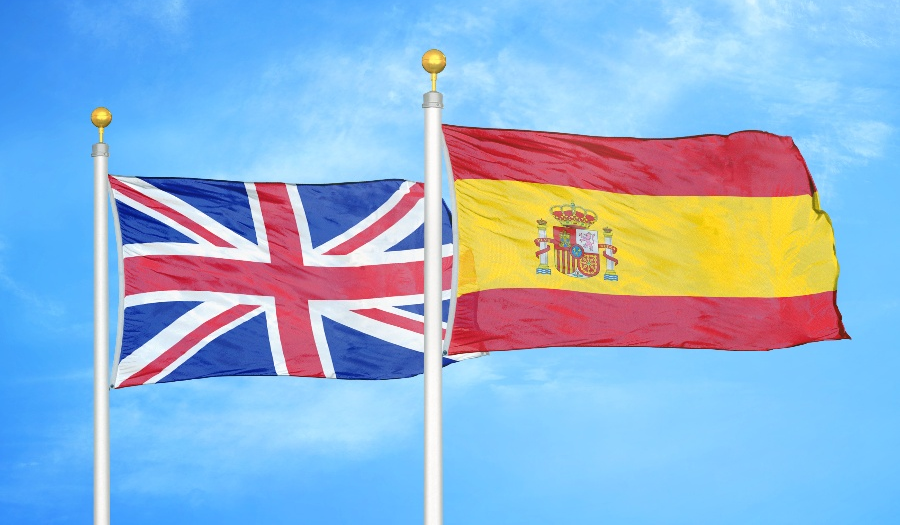
Cross border-estates: The UK and Spain - 10 Frequently Asked Questions
Aug 12, 2020 3:19:00 PM
By Roser Coll, Spanish Solicitor and Partner at Probate in Spain by Temis & Co International Lawyers
When talking about cross-border estates, we always receive similar questions from our clients, as they are worried about different issues concerning the Spanish side of the estate. The beneficiaries of someone who has passed away with an estate which includes Spanish assets (property, bank accounts, moore, boat, cars, etc.) are usually quite lost about how to sort out their inheritance in Spain. This article will answer some of the most commonly asked questions to help you guide conversations with your clients.
1. How can I save on Inheritance Tax in Spain?
It is advisable to make a Spanish Will referring only to your Spanish assets in order to plan in advance who your beneficiaries will be, and how much tax they will be liable for. It should be noted that the exact tax rules depend on each Autonomous Community and Local Council (Ayuntamiento), so each case should be studied separately. When making your Spanish Will, you should ensure you are provided with clear estate planning, advice on tax minimisation and Will writing services in English. This will ensure your Spanish Will is compliant with Spanish laws and fully enforceable in Spain. At Probate in Spain by Temis & Co, we can help you create a Spanish Will.
2. Do I need a Spanish Will?
If you own Spanish property, we strongly advise you to make a Spanish Will referred to your Spanish assets only. If something happens to you without having a Spanish Will in place, the execution of your inheritance in Spain can be time-consuming, complicated and expensive. Moreover, it will leave your heirs on their own to handle an additional difficulty: dealing with Spanish bureaucracy.
3. How do I know if there is a Spanish Will?
In Spain there is a centralised system for registering Wills which are to take effect over Spanish assets: the Last Wills Registry (Registro General de Ultimas Voluntades). All Wills are registered, whether they have been signed in the UK before an English Notary (provided registration in Spain has been arranged), or in Spain before a Spanish Notary. Custody of the Wills is therefore secured against loss or destruction. When making a request to the mentioned institution, we will always know if a Spanish Will was made.
4. What happens if I die intestate?
If you do not have a Will in place defining the applicable law, according to European Union rules that entered into force on 17 August 2015,
the applicable law for estates in Spain is the law of your habitual residence. This means that your assets would be distributed based on the intestacy rules of the Spanish Law in the region where you have established your residence. For example, if you have your residence in Mallorca, it brings into play a combination of forced-heirship rules and life tenancies for spouses. Again, this is why it is highly advisable to make a Spanish Will if you own property in Spain.
5. Can I sell the Spanish property in the estate?
As a beneficiary of an estate with Spanish assets, prior to selling a Spanish property, you must accept the inheritance in Spain before a Spanish Notary in a Public Deed, and pay the Inheritance Taxes to the Spanish Inland Revenue and Local Council (Ayuntamiento). As a Treaty of Double Taxation between the UK and Spain applies, you will pay Inheritance Tax (IHT) over Spanish assets ONLY to the Spanish Tax Authorities, and NOT to the Inland Revenue for UK Inheritance Tax purposes.
6. Can I inherit the 50% property from my husband/wife/civil partner, as I have joint tenancy in Spain?
In Spain, the property ownership differs from the UK. When a spouse owns half of the property each in joint ownership, if one passes away it does not mean that the surviving spouse will automatically inherit all the property. According to Spanish Law, before one can become the owner, the inheritance proceeding has to take place in Spain.
7. Do we need to pay taxes in both countries, UK and Spain?
The response is no. As there is a Double Treaty agreement between the UK and Spain, the lawyers of both countries will be coordinated to avoid paying Inheritance Tax twice.
8. Is there any tax discrimination between Spanish residents and non-residents?
In 2015, the EU courts decided that Spain was discriminating other EU nationals and overcharging Inheritance Tax from heirs who had their residency in other EU countries outside of Spain; since these heirs could not benefit from the same deductions as the Spanish residents could.
9. What are the taxes of executing an inheritance in Spain?
Apart from the Inheritance Tax (depending on the Atonomous Community where the asset is located), the heirs shall pay a local tax called “Plusvalía” Tax. This is based on the increase of the value of the land from the day the deceased acquired the property up to the date of the death.
10. What are the costs related to an inheritance in Spain?
The costs to claim the inheritance are:
i. Notary fees: approx. 1.000 euros
ii. Registry fees: approx. 800 euros
iii. Bilingual Power of Attorney and Apostille: approx. 250 sterling pounds
iv. Legal fees: estimated 1% of the inheritance. Minimum fee: 3.500 sterling pounds
If you have any questions about Spanish Wills, estate planning and the administration of estates with Spanish assets, contact Roser Coll by emailing info@probateinspain.co.uk.
Topics: Entitlement, Overseas Assets, Guest writer


